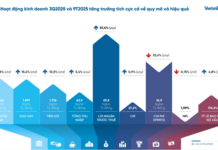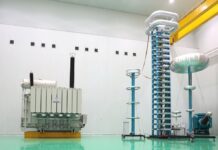“The Eagle” Builds its Nest
Dear Minister, the past year can be considered a busy one for the Ministry of Planning and Investment in terms of promotion and attraction of foreign investment. Continuous working trips with business delegations from the largest corporations ever to come to Vietnam have resulted in successful agreements and partnerships.
Minister Nguyen Chi Dung: The promotion and attraction of foreign investment in 2023 has seen many positive developments, continuing to be a highlight of Vietnam’s economy. Reputable institutions, community associations, foreign investors continue to have a positive outlook on Vietnam’s economic growth and business investment environment. At the same time, they recognize Vietnam’s potential to become an important link in the global supply chain. Vietnam’s international standing is increasingly strengthened, particularly through upgrading relations with the United States and Japan to comprehensive strategic partnerships, which have created new cooperation opportunities and momentum for investment and business activities.
Many large corporations and companies have come to explore investment opportunities in emerging fields in Vietnam, such as science and technology, innovation, semiconductors, green hydrogen, digital transformation, green transition, digital economy, circular economy, knowledge economy, and sharing economy. Notable examples include Nvidia (USA), committing to make Vietnam their second home; Hana Micron (South Korea) inaugurating Phase 2 and increasing their total investment in Vietnam to $1 billion; and Adani (India) committing to invest $10 billion in Vietnam over the next 10 years in areas such as infrastructure and renewable energy. These projects are expected to drive economic restructuring and create new growth momentum for Vietnam in the coming years.
The semiconductor industry has received particular attention. What are the prospects and potentials for this sector in Vietnam in the near future? What do we need to do to promote cooperation in the semiconductor industry?
Minister Nguyen Chi Dung: In the context of the semiconductor value chain gradually shifting to Southeast Asian countries, Vietnam has all the necessary conditions to develop the semiconductor industry, including political stability, favorable geographical location, attractive investment incentives, abundant technical and technological human resources, and a progressively developing infrastructure. The Vietnamese Government has a strong determination to pursue and develop the semiconductor industry and has been attracting an increasing number of major corporations in this field.

By 2030, Vietnam aims to have 50,000 semiconductor experts.
In fact, many large corporations in the electronics and semiconductor industry are present in Vietnam and have plans to expand their investments, such as Intel, Samsung, Synopsys, Qualcomm, Infineon, and Amkor. This demonstrates Vietnam’s key role and increasing importance in the global semiconductor supply chain.
Urgent Need to Train 50,000 Engineers
The semiconductor industry presents significant opportunities, but are there challenges? Chip production requires substantial investments, where do we start? What is the role that the government can play in supporting and accompanying this process?
Minister Nguyen Chi Dung: From 2001 to 2021, the global semiconductor industry has grown at a rate of 13% per year, reaching $600 billion by 2021. The semiconductor industry is expected to continue strong growth, reaching $1 trillion by 2030 (according to Boston Consulting Group – BCG). The world’s largest economies – the United States, China, the European Union, South Korea, and Japan – have all announced subsidy plans for semiconductor manufacturing, creating global technology competitiveness. This industry presents opportunities for all countries, including Vietnam, in terms of exports and the growing demand for semiconductor components.
However, this field also poses challenges for businesses and governments. Chip production requires significant investment, special infrastructure, and complex manufacturing lines. Moreover, the increasing complexity of technology requires substantial investment in research and development to maintain competitiveness, and a large demand for high-quality personnel. Currently, Vietnam’s human resources are still in the early stages, with skills and qualifications that are insufficient to meet the needs of businesses.
“The Vietnamese Government has, is, and will make every effort to create the best conditions to welcome investors in the semiconductor industry. In the near future, I believe Vietnam will become a reliable partner and an important link in the global semiconductor value chain. I hope investors will come, seek their investment opportunities, and contribute to the development of Vietnam.”
– Minister Nguyen Chi Dung
To develop our semiconductor industry to match our existing advantages, the Ministry of Planning and Investment is focusing on several tasks to lay the foundation for this high-tech industry. One key aspect is to improve the quality of our human resources. A high-quality human resources development plan for the semiconductor industry has been developed, with a target of having 50,000 experts in the sector by 2030. The plan concentrates on developing professors, students, creating internationally standardized curricula, training at the postgraduate level, attracting domestic and international talents, deploying international training programs to develop highly skilled personnel according to international standards, creating an environment for exchange and learning abroad, and promoting technology transfer and learning advanced technologies. To initiate this plan, the Ministry of Planning and Investment has signed cooperation agreements with two major US chip design corporations, Synopsys and Cadence, to establish research centers and semiconductor design incubators. Additionally, more than 30 domestic and international universities and research institutes will collaborate to implement talent training programs…





































